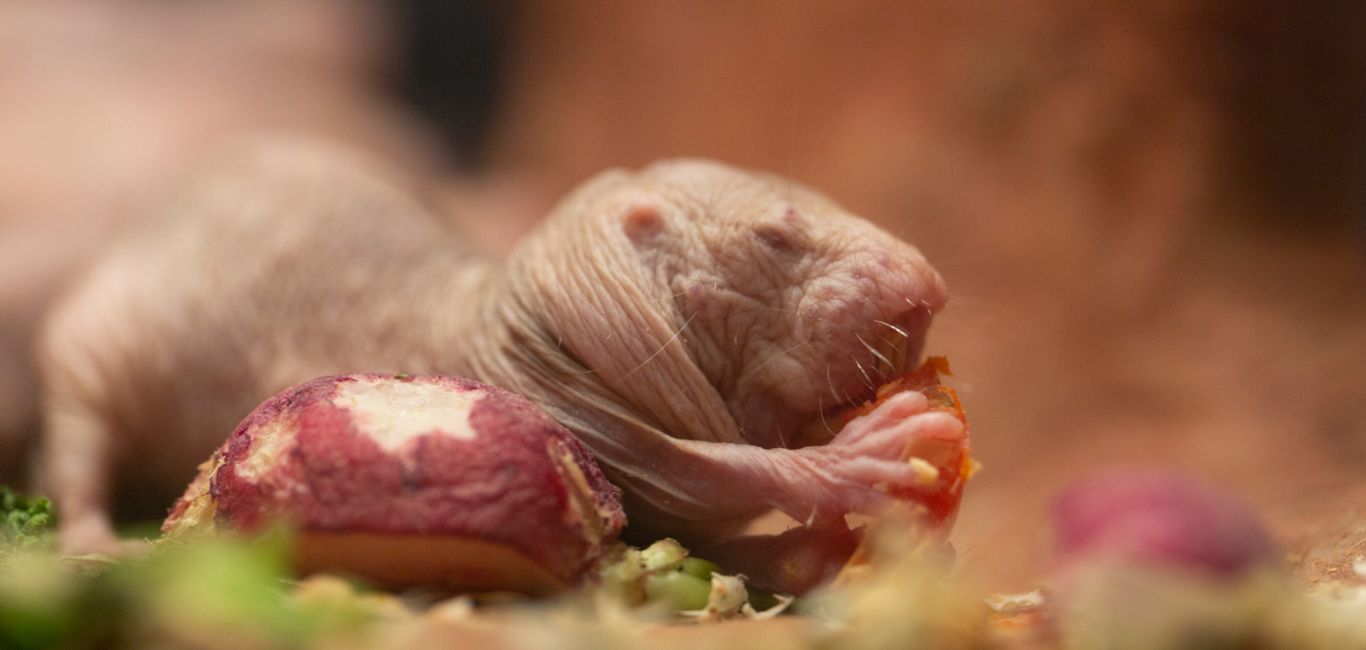
The naked mole rat is nature’s longest living rodent, with a lifespan of up to 41 years — nearly 10 times longer than that of a mouse. Not only do mole rats outlive most of their counterparts, but they are also cancer resistant. Studying them has long been a focus for efforts towards human longevity.
Their surprising resilience, even at advanced ages, is evident in their low mortality rates — after six months of age, a naked rat has just a one in 10,000 chance of dying early. This resilience may even be age-defying, improving as they grow older.
For researchers in longevity studies, the mole rat has long been an exciting case study for biological functions that could prolong life. Now, a proof of principle for transferring these positive effects across species has just been demonstrated by researchers at the University of Rochester, New York, United States, where a gene linked with enhanced cellular repair and protection was transferred from naked mole rats to mice.
Their work, published in the journal Nature, outlines the successful transfer of a gene responsible for producing high molecular weight hyaluronic acid (HMW-HA) from naked mole rats to mice. This accomplishment translated into significantly improved health and an impressive 4.4 per cent increase in median lifespan for the mice subjects.
“Our study provides a proof of principle that unique longevity mechanisms that evolved in long-lived mammalian species can be exported to improve the lifespans of other mammals,” said Vera Gorbunova, the Doris Johns Cherry professor of biology and medicine at Rochester and one of the study’s authors, in a release.
Improving immunity
The researchers had earlier identified HMW-HA as one of the mechanisms responsible for the mole rats’ cancer-resistance. Mole rats have around 10 times more HMW-HA in their bodies than humans. Removing HWM-HA from naked mole rat cells was seen to increase the likelihood of tumour formation. Researchers believe HMW-HA may be able to directly regulate the immune system.
In their tests, the genetically modified mice produced the naked mole-rat’s hyaluronic acid in higher amounts. These mice, known as nmrHas2 mice, displayed several extraordinary changes: they had increased levels of hyaluronic acid in their tissues, a lower chance of getting cancer naturally or through experiments, and they lived longer and healthier lives. The scientists noticed that the gene signature of these mice shifted towards that of animals known for living longer.
The most significant change observed in the nmrHas2 mice was a reduction in inflammation across their body’s tissues. Hyaluronic acid seemed to have multiple ways of achieving this, such as directly controlling the immune cells’ activity, protecting cells from harmful oxidative stress, and even improving the gut’s defence against ageing-related problems.
Also read: Why scientists think healthy ageing may start in the gut
Importantly, these beneficial effects were not limited to the specific nmrHas2 gene but were linked to the HMW-HA itself. This suggests that the mechanism behind the naked mole-rat’s extended lifespan could be shared with other species, with implications for future research on human longevity.
From mice to men
The next step, with time, will be to see whether the gene can work in humans.
“It took us 10 years from the discovery of HMW-HA in the naked mole rat to showing that HMW-HA improves health in mice,” Gorbunova noted. “Our next goal is to transfer this benefit to humans.”
There are two routes for a human approach, the researchers note in the release. One is to slow down the degradation of HMW-HA, the other to enhance its synthesis.
“We already have identified molecules that slow down hyaluronan degradation and are testing them in pre-clinical trials,” Andrei Seluanov, a professor of biology at the University of Rochester and one of the study’s authors, said in the release. “We hope that our findings will provide the first, but not the last, example of how longevity adaptations from a long-lived species can be adapted to benefit human longevity and health.”















